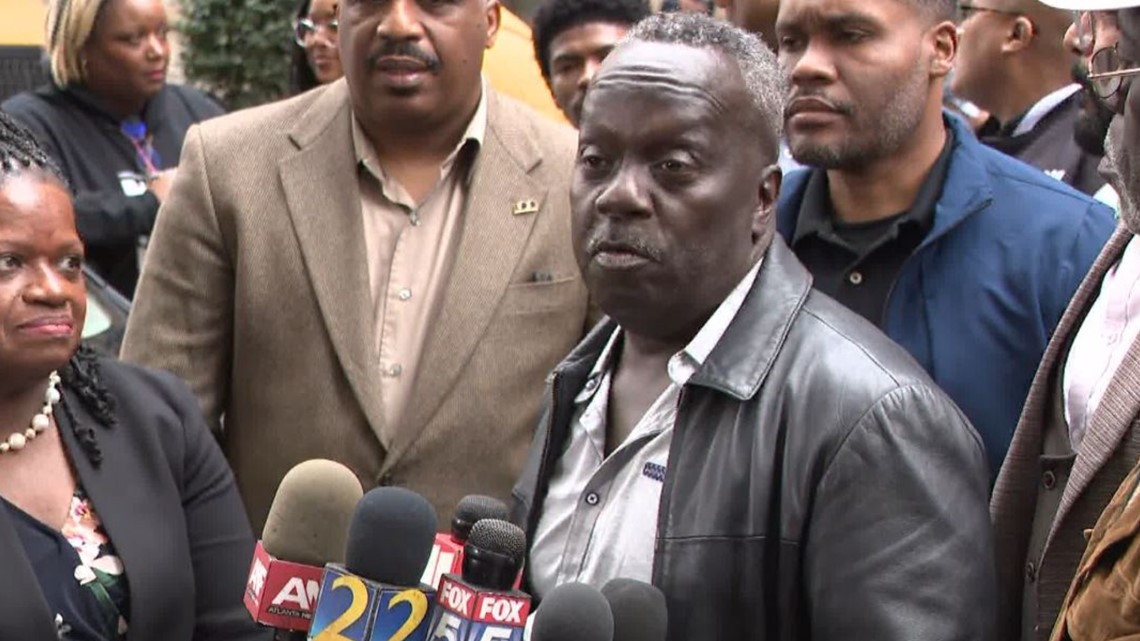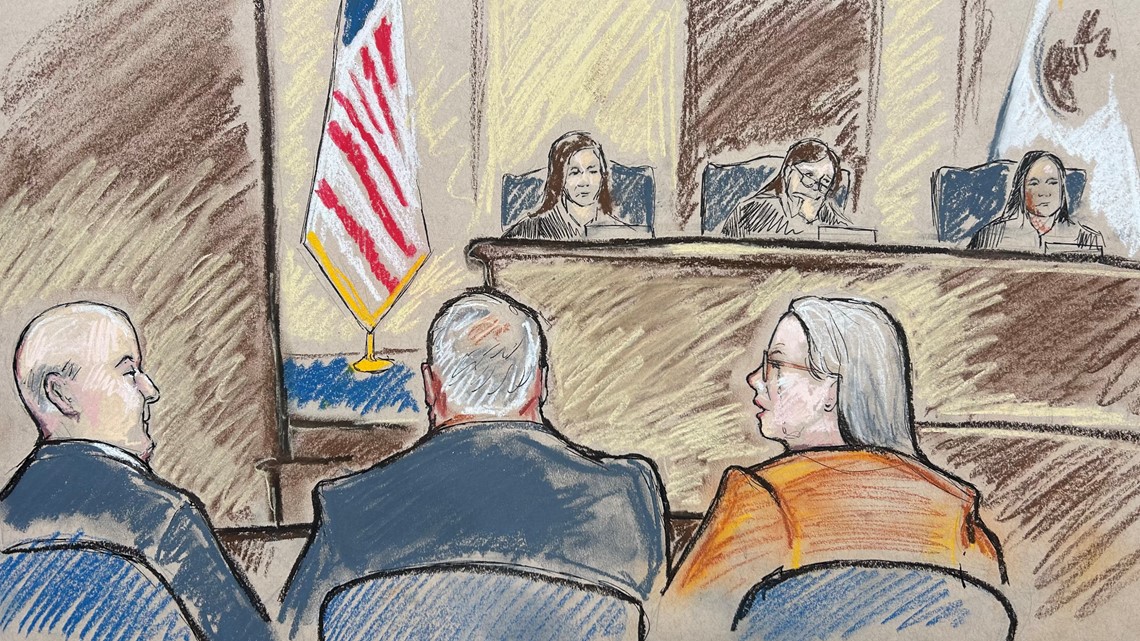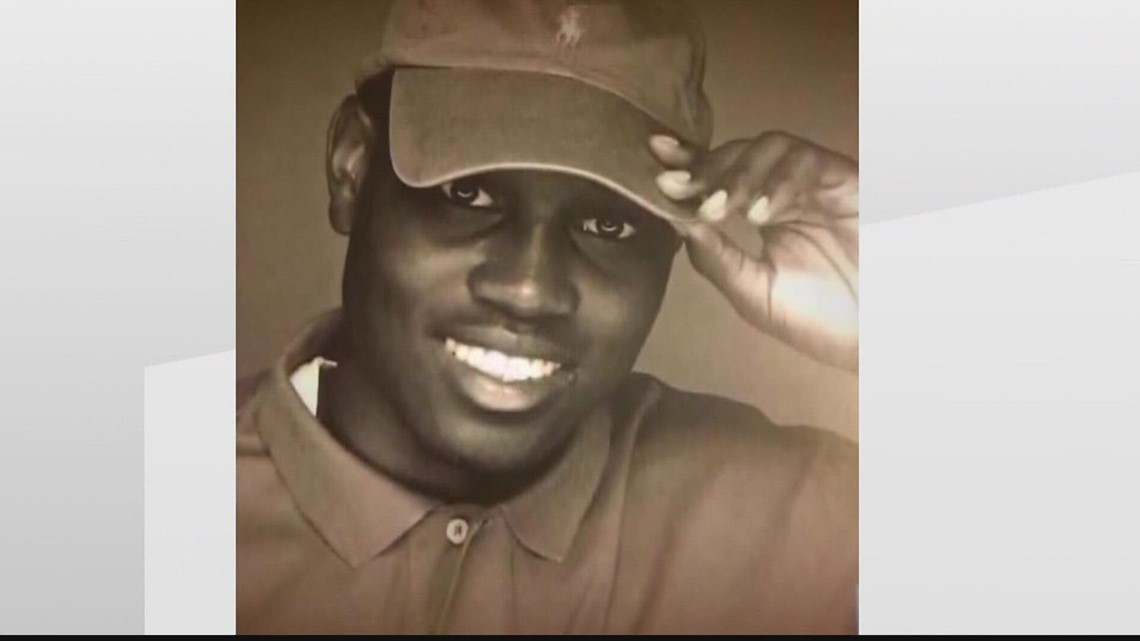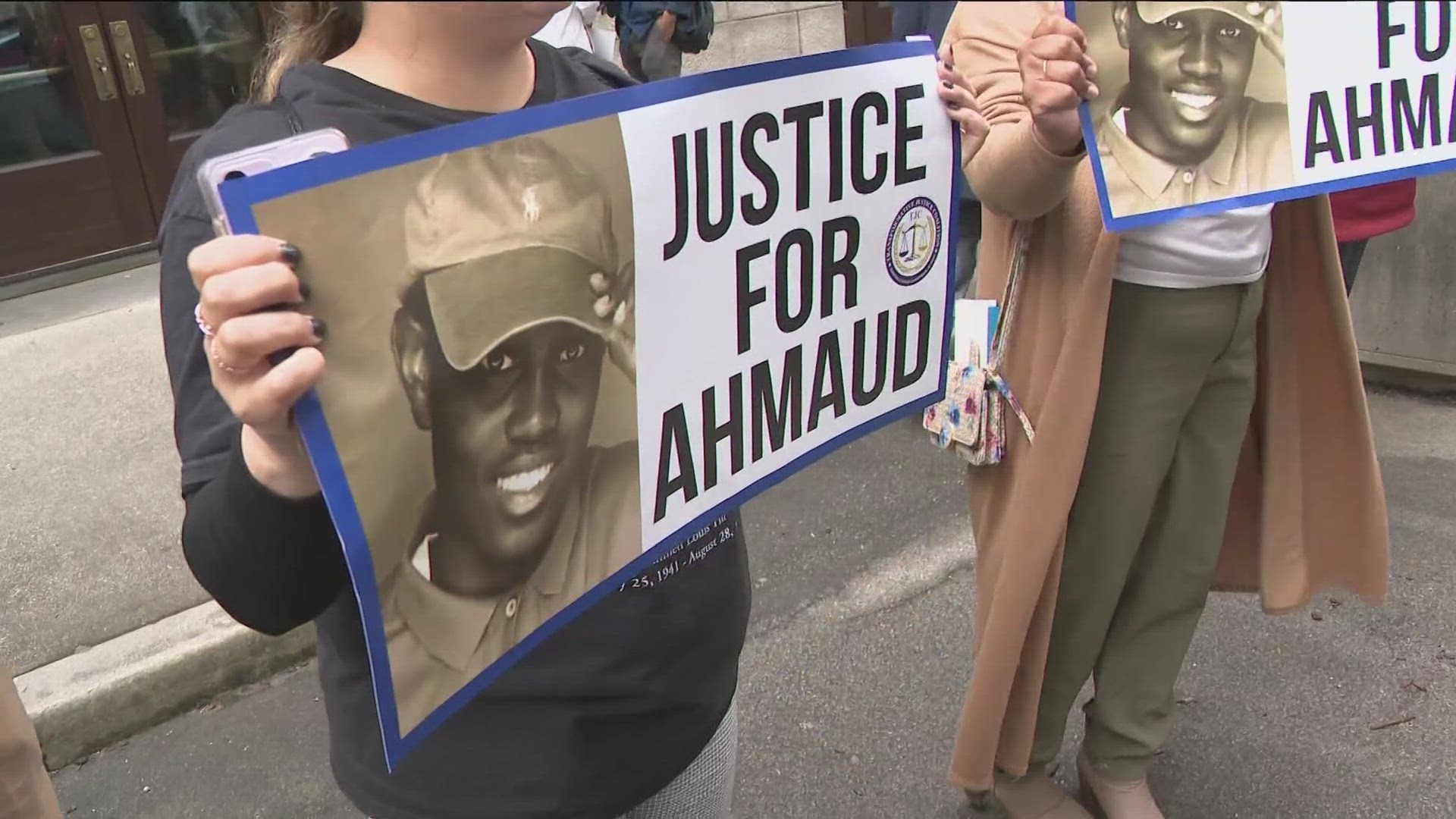SAVANNAH, Ga. — The three white men convicted of hate crimes for chasing and killing Ahmaud Arbery in a Georgia neighborhood in 2020 argued their appeals heard by a federal court Wednesday.
The proceedings, which ended a little after 10 a.m., saw attorneys for father and son Greg and Travis McMichael and their neighbor, William “Roddie” Bryan, make their arguments as they ask the court to throw out hate crime convictions returned by a jury in 2022.
A rally was held by Arbery's father and supporters outside the court afterward.
"What happened to 'Maud is everybody's problem," Marcus Arbery Sr. said. "Because if we don't stop this now, this country is gonna go backwards... we got to bring changes, we got to make our young people feel free to run and have fun and not get chased down like animals."


Attorney Gerald Griggs, the president of the Georgia NAACP, spoke and said his impression from the way the judges questioned lawyers, that the appeals court would affirm the conviction.
"It seems that that's clear, especially from the questions from two of the learned judges in the Court of Appeals, that there's an affirmance coming," he said. "Of course you can't always predict things but from their questioning, it seemed very clear."
11Alive's Joe Ripley was in federal court and reports that U.S. prosecutors argued the killing of Arbery was what the 1968 Civil Rights Act was crated with in mind when it comes to defining hate crimes, and that race was a causal factor in the three men chasing Arbery down and killing him.
AJ Balbo, the attorney for Greg McMichael, argued the government failed to prove a hate crime and race was a non-contributing role in the 2020 killing. Bryan's attorney, Pete Theodocion, made arguments for his client based in kidnapping statutes, arguing he wasn't holding Arbery for any personal benefit.
Travis McMichael's attorney Amy Copeland made the technical argument that prosecutors failed to prove that Arbery was pursued and killed on public streets as stated in the indictment used to charge the three men. She asserted that Glynn County doesn't actually control the street where Arbery was killed.
Arbery, 25, was chased by the men in pickup trucks and fatally shot in the streets of a subdivision outside Brunswick on Feb. 23, 2020. His killing sparked a national outcry when cellphone video Bryan recorded of the shooting leaked online more than two months later.




The McMichaels armed themselves with guns and pursued Arbery after he was spotted running past their home. Bryan joined the chase in his own truck and recorded Travis McMichael shooting Arbery at close range with a shotgun.
The McMichaels and Bryan stood trial on hate crime charges in U.S. District Court less than three months after all three were convicted of murder in a Georgia state court. Federal prosecutors used social media posts, text messages and other evidence of past racist comments by all three men to argue they targeted Arbery because he was Black.


Both McMichaels received life prison sentences in the hate crimes case, while Bryan was sentenced to 35 years in prison.

